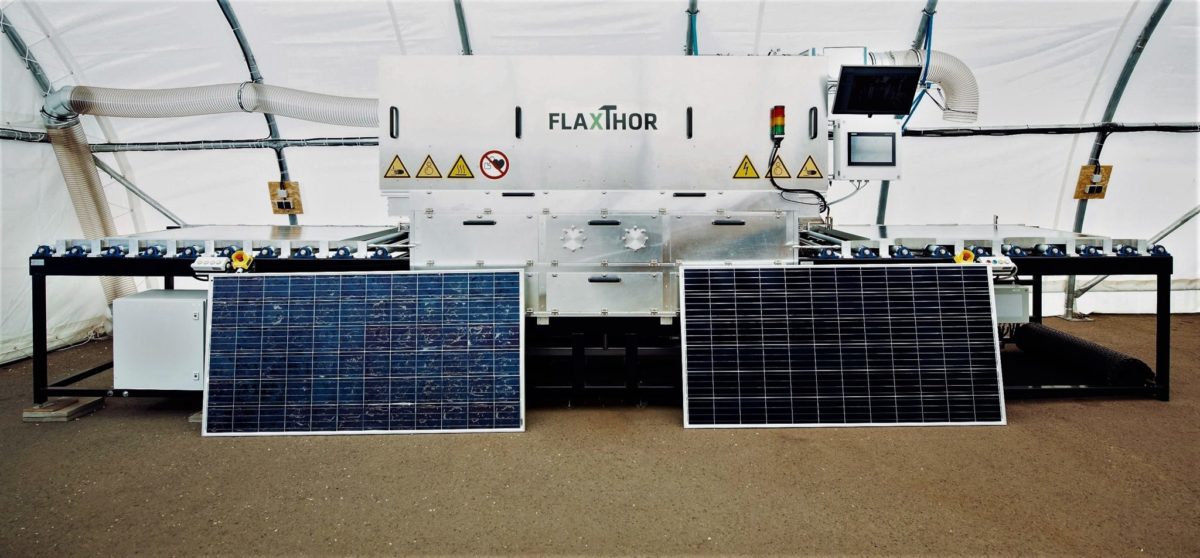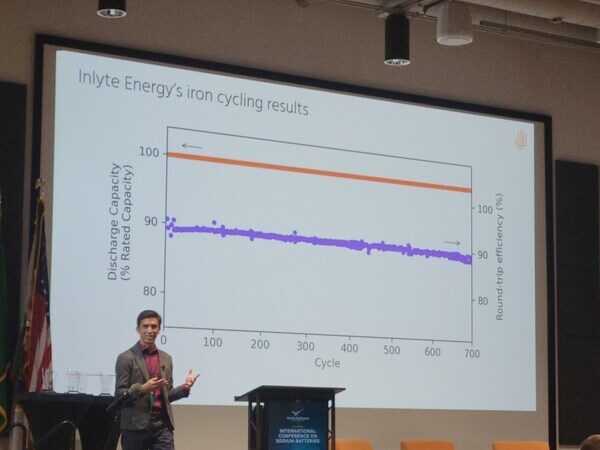Flaxres says it has transferred its proprietary technology to an industrial process, and is bringing its pilot solar panel recycling system to market.
The basis for the breakthrough was a successfully completed mass test with the recycling of 7.5 tons of solar modules in the “Flaxthor” production plant, it added. According to Flaxres, more than 200 kg of silicon and 4 kg of silver were recovered, as well as 4.9 tons of glass of the highest quality. The site in Dresden has a potential recycling capacity of more than 1,000 tons per year.
The new site serves purely as a development location, a Flaxres spokesman told pv magazine. There, the pilot production plant with a maximum capacity of 10 tons per day will be operated to test new and optimized process steps for full automation. The company its pilot plant achieves a cycle time of 10 seconds per module.
Based on this prototype, Flaxres wants to develop mobile equipment that will fit into a shipping container and be rented to customers, he said. “A full-scale stationary plant is rather counterproductive. The issuance of the operating license is advised for the end of 2022,” the Flaxres spokesman added. The plan, he said, is to begin constructing these new “Flaxthor” plants in 2024, and to have them available to customers by 2025.
According to the Flaxres spokesman, several contracts have already been signed with customers operating internationally. “However, the plants will not be sold, but only leased on a monthly basis with our personnel.” He also said that 100% of the total recycling capacity of the five new plants has already been allocated for 2024.
The plants are suitable for both crystalline and thin-film modules, and can process modules with damaged glass panes. All modules are separated into their main components with a low energy input. The materials recovered are of high quality due to the separation process developed and can thus enable a genuine recycling economy. The company does not rely on chemicals for its recycling process, it added.
The quantities of solar modules generated annually for recycling are still rather small. By 2030, however, a quantity of around 400,000 tons of these solar modules is expected for Germany alone, according to Flaxres. This corresponds to a number of about 20 million individual modules, and many companies and researchers are working on efficient recycling processes.
This content is protected by copyright and may not be reused. If you want to cooperate with us and would like to reuse some of our content, please contact: editors@pv-magazine.com.




7 comments
By submitting this form you agree to pv magazine using your data for the purposes of publishing your comment.
Your personal data will only be disclosed or otherwise transmitted to third parties for the purposes of spam filtering or if this is necessary for technical maintenance of the website. Any other transfer to third parties will not take place unless this is justified on the basis of applicable data protection regulations or if pv magazine is legally obliged to do so.
You may revoke this consent at any time with effect for the future, in which case your personal data will be deleted immediately. Otherwise, your data will be deleted if pv magazine has processed your request or the purpose of data storage is fulfilled.
Further information on data privacy can be found in our Data Protection Policy.